
By:
- Judy Piercey
Published Date
By:
- Judy Piercey
Share This:
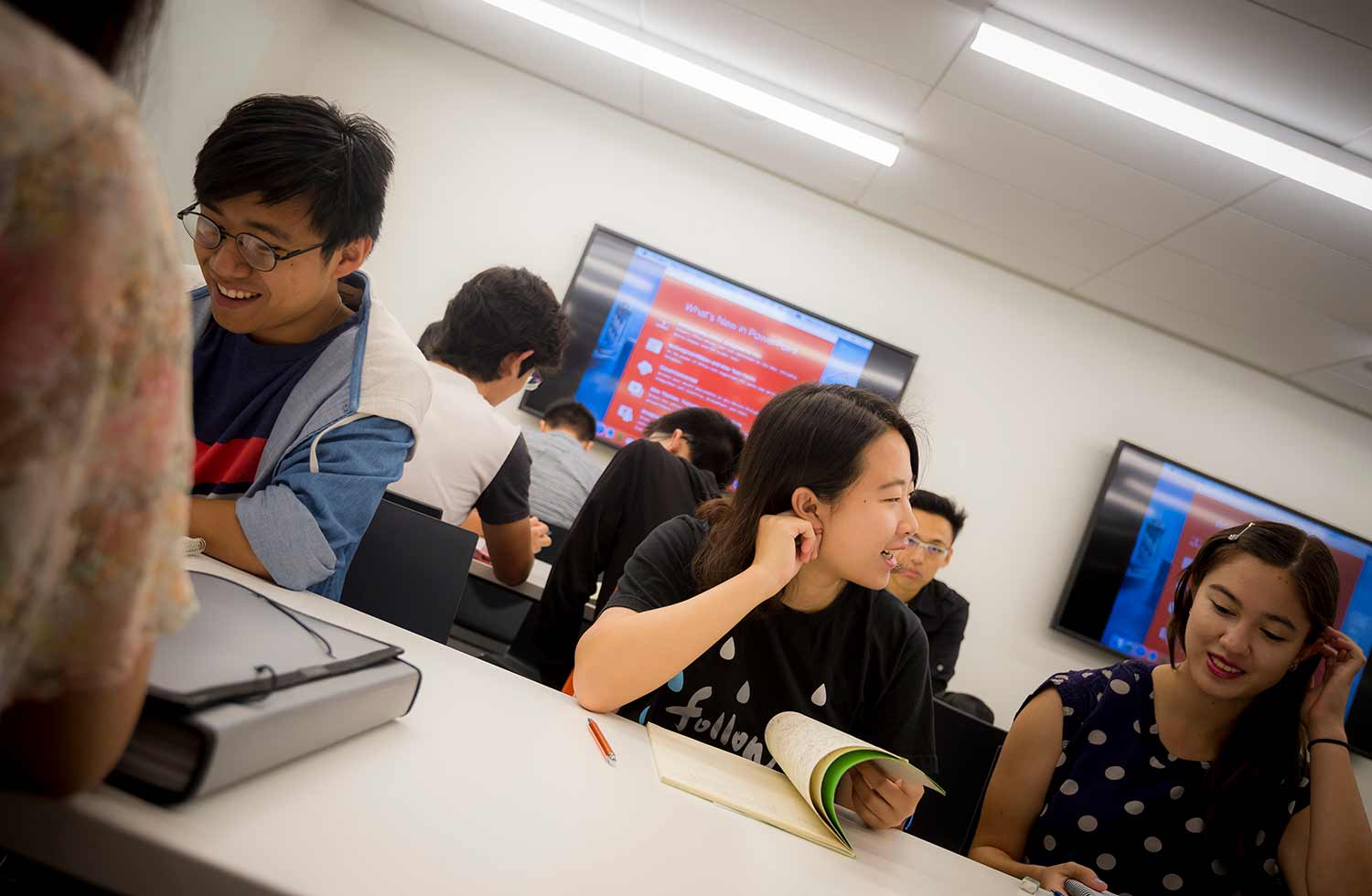
Photos by Erik Jepsen/UC San Diego Publications
Improving How Instructors Teach and Students Learn
It’s year two, and not only does the Teaching + Learning Commons have a full suite of programs and services in place to support UC San Diego undergraduates, graduate students and instructors—it also has a new home in Geisel Library. In 2015, the campus established The Commons, a grass-root outcome of UC San Diego’s Education Initiative and part of the Strategic Plan, to change and improve how we teach and learn.
“At UC San Diego, our educational goals are to maximize all students’ potential for academic and post-graduate success and prepare all students to become global and innovative problem solvers and social change agents,” said the Teaching + Learning Commons Faculty Director, Gabriele Wienhausen.
She added, “What does it take to make that happen? Many educational principles need to be aligned, including strong academic major programs, excellence in teaching, meaningful advising, great peers and experiential learning which bridges the gap between theory and practice.”
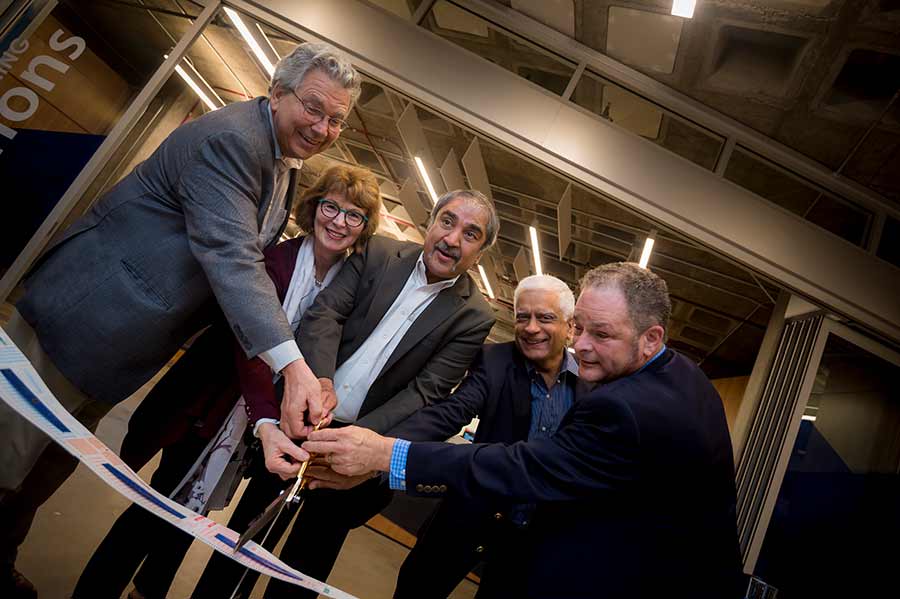
The Commons helps instructors become better teachers through seminars, workshops and discussions about effective teaching methods and new instructional technologies.
Undergraduate students are provided a suite of learning tools and services that help ensure their success at our campus, and beyond.
On Oct. 17, the campus community celebrated the opening of The Commons in the lower west wing level of the Geisel Library building, where many of the teaching and learning resources are offered. Geisel Library serves as a critical hub for supporting and advancing faculty and student research and learning, which dovetails perfectly with the Teaching + Learning Commons’ mission.
“We are very pleased to welcome Gabriele Wienhausen and The Commons’ staff to Geisel Library,” said University Librarian Brian Schottlaender. “The Library and The Commons are both focused on supporting our students and faculty in their research, teaching and learning efforts, so the many synergies that exist between our units make partnerships a natural. The big winners in this are our students and faculty, which makes this a big win for all of us.”
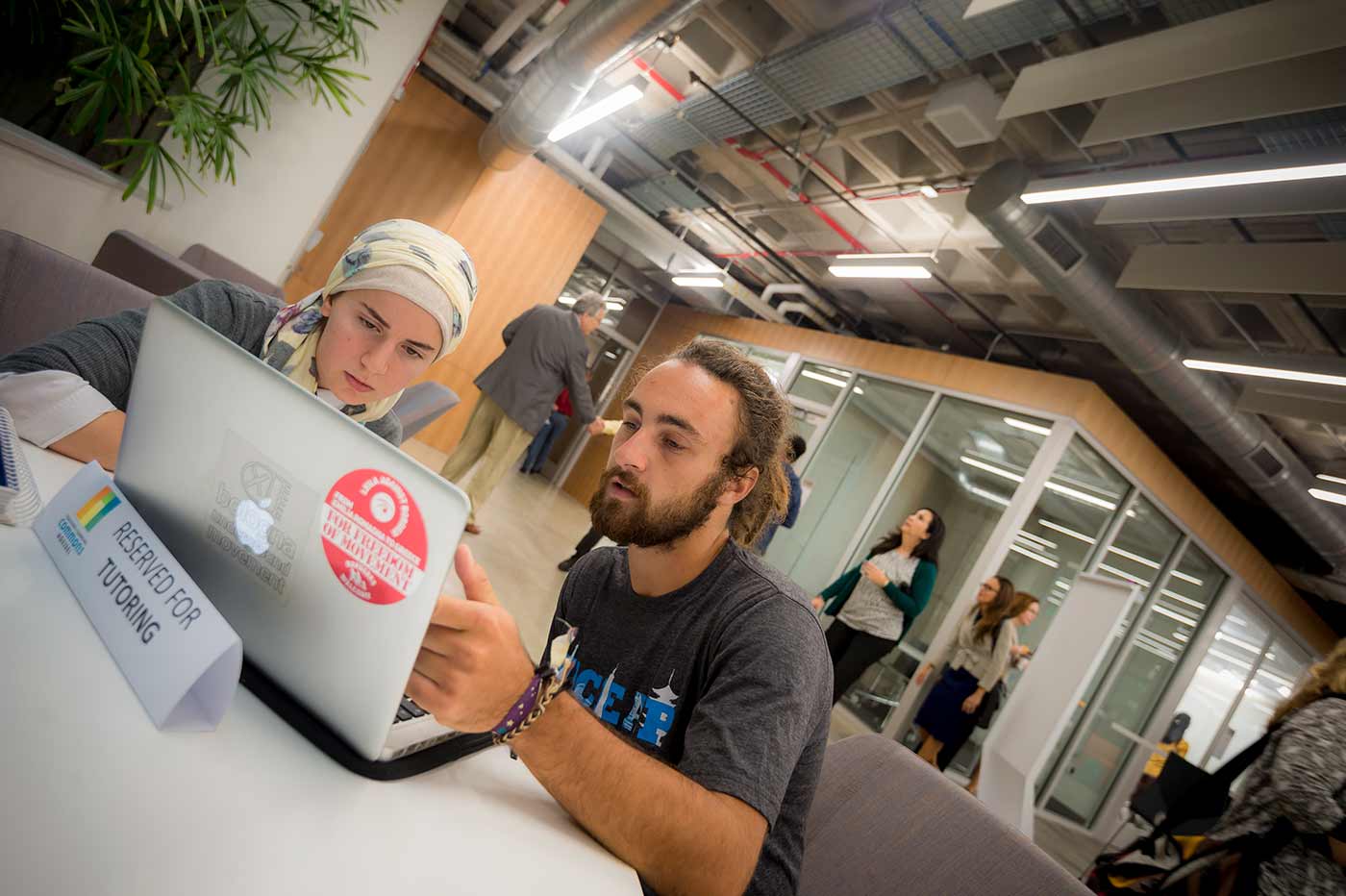
Engaging Undergraduate Learners
UC San Diego is one of the first universities in the country to offer tools that not only engage students, but provide experiential learning opportunities to help develop important transferable skills that employers look for when interviewing candidates.
“I was on the task force and committee to get the Engaged Learning Tools up and running, and from my perspective, this suite of online tools is great for students to discover and share their real-world, experiential learning that supports their academic success,” said Craig Schmidt, executive director of the UC San Diego Career Center.
Portfolium, one of the online tools, was launched in 2014 by aerospace engineer and UC San Diego alumnus Adam Markowitz. The cloud-based platform empowers students to capture, curate and convert skills into job offers. Schmidt said that at last count more than 7,000 UC San Diego students had created an electronic portfolio using Portfolium, which is helpful not only for employment but also for medical school and graduate school admissions.
Peer-facilitated study groups to improve student success rates are also offered by The Commons. The Supplemental-to-Instruction (SI) program, one of the first in the UC system, targets difficult courses rather than struggling students. The program complements all lower division math courses—courses that a majority of UC San Diego students must pass. Undergraduates, who have been successful students in math, are trained to be peer facilitation leaders to guide students currently in the class in strategies for learning course content.
“Tutoring at my previous college was really wonky,” said Gabriella Chaname, a third-year Cognitive Science student who transferred to UC San Diego this fall. “Here at the Teaching + Learning Commons, if for some reason I’m stuck and not moving forward, they break it down in a simpler way and then proceed forward and help you figure it out yourself. I do like the peer instructors—they can relate since they recently went through the class.”
Resources for Graduate Students
The Commons offers a robust network of resources specifically for graduate students to advance their teaching knowledge and think about ways to translate their disciplinary perspective into effective teaching strategies
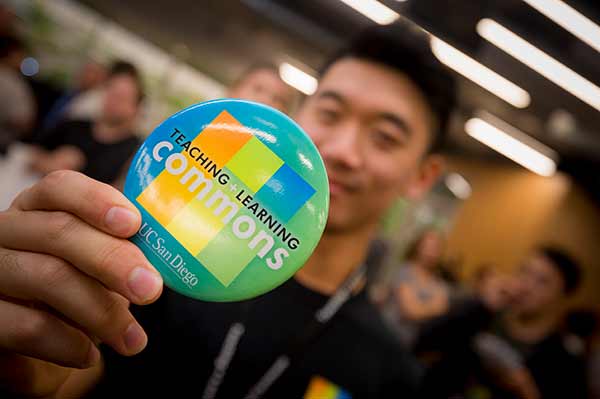
For UC San Diego postdoc Yong Li, the resources are extremely helpful—but he wishes they had been in place in 2009 when he first arrived on campus as a graduate student in Structural Engineering. He is currently preparing for a faculty position at a Canadian university where writing effective proposals to obtain research funding is a critical skill.
“I meet each week with a writing consultant to help with journal articles and proposal writing,” he said. “Previously I received some feedback—mostly in the form of tracked corrections—from journal editors, but I don’t find that helpful, and they are offering advice remotely. Here, I’m meeting one-on-one, and I’m getting very good advice. My advisor, who has experience in proposal and other writing, is very constructive.”
Li added, “I am from China, so I’m not a native English speaker. But regardless of where they are from, I think many graduate students and postdocs could use help in improving their proposal and journal writing skills.”
Transforming and Innovating Teaching
The Commons provides pedagogy support and fosters advances in instructional design to help faculty create student-centered learning environments.
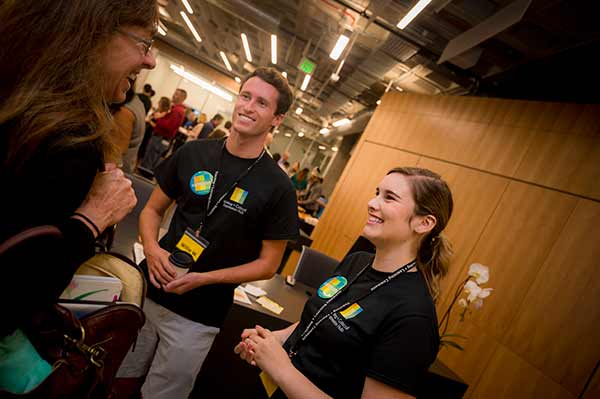
For example, the new Course Redesign Studio, launched by the Center for Engaged Teaching as part of The Commons, offers seminars, workshops and informal discussions aimed at disseminating knowledge about effective teaching methods and new instructional technologies. The mission of the center is to actively create, offer and support research-based and innovative resources to advance teaching, learning and assessment.
For new instructors, the workshops have proven invaluable. “We are trained to do research and be experts in our fields, but few of us have been formally trained to write an effective syllabus,” said Ryan Lepic, an adjunct lecturer entering his third quarter teaching Linguistics, the scientific study of human language.
"The Course Redesign Studio is very practical: you bring in digital copies of your previous course material, and the staff at the Center for Engaged Teaching provides you with tools and opportunities to redesign your learning outcomes, your assessments and your quarterly schedule. So, you leave the workshop with a concrete product—the redesigned syllabus.”
Mia Minnes, an assistant teaching professor in Computer Science and Engineering, has been at UC San Diego since 2010 working with undergraduate students as well as graduate student teaching assistants.
“The three-day Course Redesign Studio gave me time and space to focus on a course that is very important but is a bit unusual: the course taken by first-time TAs,” said Minnes. Her key takeaway from the workshop: backwards design. “Plan what you want your students to be able to do at the end of the course before mapping out the week-by-week or lesson-by-lesson syllabus.”
For more information about the programs and services offered by the Teaching + Learning Commons, please visit commons.ucsd.edu.
Share This:
You May Also Like
Stay in the Know
Keep up with all the latest from UC San Diego. Subscribe to the newsletter today.


